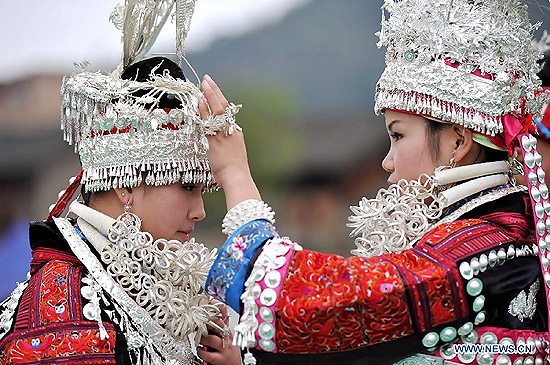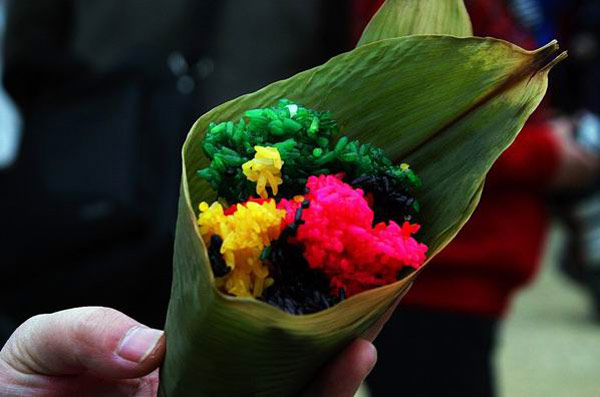The Water-Splashing Festival is the New Year’s celebrations of the
Dai ethnic minority in Xishuangbanna Dai Autonomous Prefecture,
southwest China’s Yunnan Province. Annually, it is held on the 24th to
26th day of the sixth month of the Dai calendar. In Gregorian calendar,
the festival always falls in the mid-April, and lasts at least three
days. Jinghong, the capital of Xishuangbanna Prefecture, usually
celebrates it from April 13 to 15.
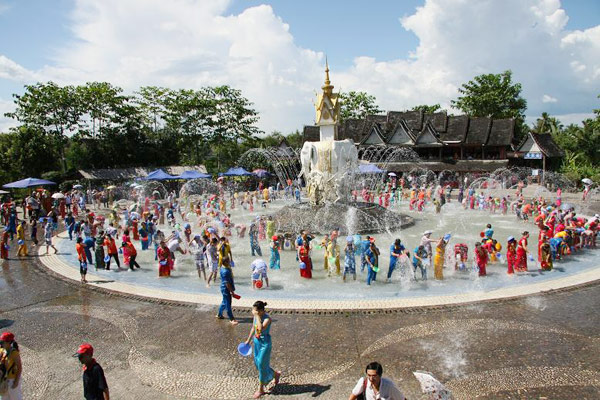 |
| Water-Splashing Festival, Xishuangbanna, Yunnan |
For Dai people, the annual Water-Splashing Festival is the most
important holiday. The three-day celebrations are filled with various
activities, including dragon-boat races, traditional Dai dances, the
launching of rockets, parades and fairs; but water splashing is central
to all.
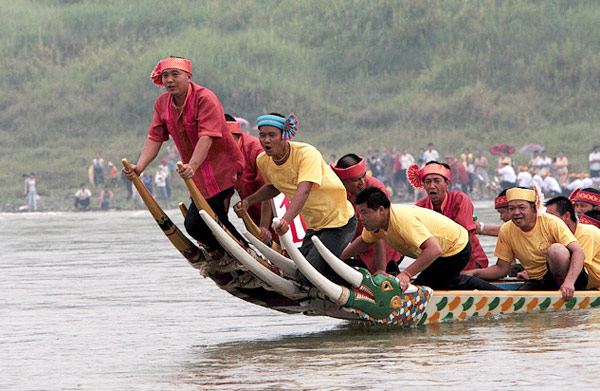 |
| Dragon-boat racing during the festival |
About the origin of the festival, legend has it that once upon a
time, there was a “demon of fire” who brought all the pains and
sufferings to the local people. All the people hatred him, but his magic
was too powerful for them to overcome. One day in the sixth month, his
seventh wife, who had been kidnapped from the village, tricked him into
revealing his weaknesses. As he slept, his wives killed the demon by
strangling him with a single hair of his own. Unfortunately, wherever
his cut-off head tumbled about, there were raging flames. However, once
the head was carried in the arms of one of the girls, the fire would
immediately go out. So the girls decided to hold the post in turn, each
for one year. At the time of New Year when they switch shifts, local
people would gather to splash water on the relieved girl to clean the
bloodstains on her body and help her recover from the year-long fatigue.
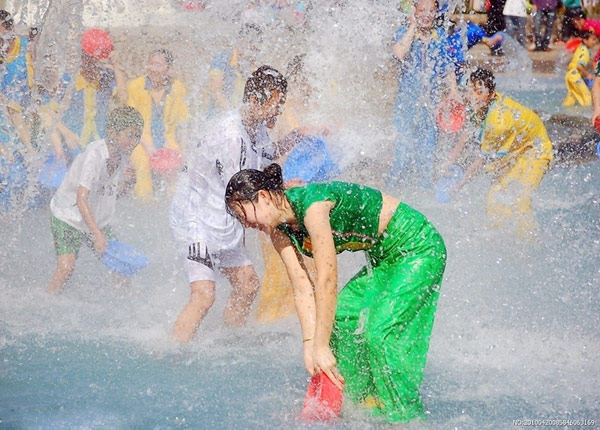 |
| People splash water and give their best regards to each other. |
Ever since, the Dai people have been celebrating the new year by
water-splashing to wash away the dirt, sorrow and demons of the old year
and bring in the happiness of the new. In the Dai culture, water serves
as a symbol of sanctity and brightness. On April 15, 2012, tens of
thousands of people throughout the world gathered to celebrate the
Water-splashing Festival in Jinghong City. Along the roadsides, in
public parks or squares, local people and tourists wearing colorful
clothes splashed water and give their best regards to each other. During
the festival, everyone is ready for blessing and receiving wishes from
others. Foreighers would get special attention so prepare to be drenched
all day. Remember, the wetter you get, the more luck you’ll receive.



